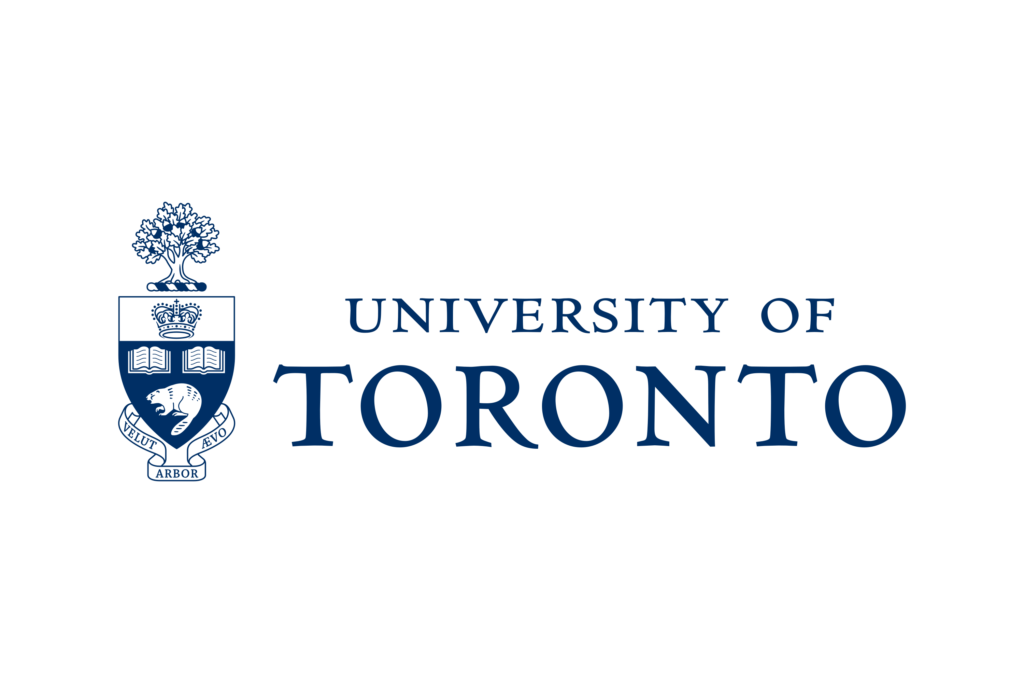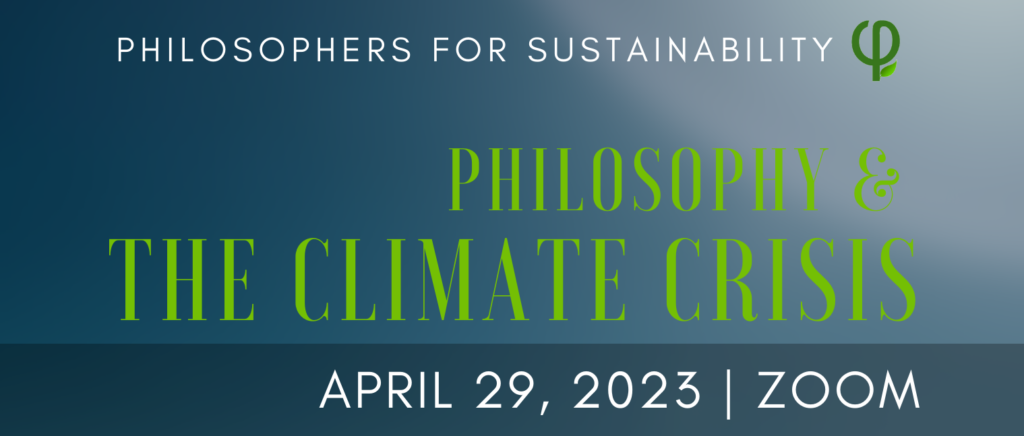Climate change presents a major challenge for our time. It is expected to greatly increase global temperatures, “natural” disasters, political instability, war, disease, drought, and famine in this century. Its impacts are far-reaching and distributed unequally. Building on our 2021 conference, this day-long conference aims at making progress in practice. We will get together to work toward addressing the climate crisis through teaching, curriculum development, event organizing, public philosophy, and institutional advocacy and change. Join us!
If you have any questions, feel free to contact us at philosophersforsustainability@gmail.com.
Simona Capisani (Durham University) and Eugene Chislenko (Temple University), Conference Organizers
Sarah Warren (University of Toronto), Technology Coordinator
NOTE: Thank you to everyone who participated in the conference and helped to make it happen! You can now view video recordings (without Q&A) of most events: the opening remarks; Jacqueline Wallis and Jeremy Bendik-Keymer and Krista Hiser on teaching and curriculum; Helen De Cruz, Marion Hourdequin, Ilana Cohen, and Lucía Muñoz Suieiro and Lorenzo Vellotti on shifting academic institutions; Kate Nicole Hoffman, Raymond Anthony, and Kian Mintz-Woo on public climate philosophy; and the beginning of the concluding Strategic Planning Forum. The conference playlist was: Dadi Freyr, Abida Parveen, Nina Simone, Ryo Fukui, Gorillaz. Many participants dropped useful resources into the chat throughout the day; we have compiled many of them in this resources document. You can also find other useful resources on our resources page.
Conference Schedule
(All times listed in East Coast USA/Canada time; convert times here)
9:30 ET / 2:30 UK | Welcome and Opening Remarks
Simona Capisani (Durham University) and Eugene Chislenko (Temple University), Conference Organizers
9:45-11 ET / 2:45-4 UK | Workshop: Teaching and Climate Curriculum Development
This session will begin with a conversation between Jeremy Bendik-Keymer and Jacqueline Wallis on approaches to emergent learning and community-engaged teaching on climate change—what has worked well in their different approaches in different institutional ecosystems, and what the aspirational possibilities could be. We will then invite attendees to contribute to a collaborative document sharing resources and ideas for teaching climate change in philosophy that we can all take home with us. The session will close with reflections and an activity led by Krista Hiser, which will be focused on better helping students manage complex emotions related to climate change.
Organizer & Moderator: Nora Mills Boyd (Siena College)
Jeremy Bendik-Keymer (Case Western Reserve University)
Krista Hiser (Kapi‘olani Community College; Editor, Field Notes: Teaching Climate Change in Higher Education)
Jacqueline Wallis (University of Pennsylvania)
11:30-1 ET / 4:30-6 UK | Panel: Shifting Academic Institutions
Whether we are students, instructors, or administrative staff, there are a number of ways philosophers—as members of an academic community—can have an impact on shifting the institution we engage with. In this session, we will explore various strategies and ways to participate in shaping the various dimensions of the university when it comes to climate justice and climate impacts. Such shifts can range in their level and impact: from large-scale curriculum re-design centering climate change, to divestment from fossil fuel funding and shifts towards fossil-free research, to more climate-conscious structures in our departments. In this session, we will learn from faculty as well as student leaders who are at the forefront of such efforts, discussing solidarity-building across institutional roles.
Organizer & Moderator: Simona Capisani (Durham University)
Helen De Cruz (Saint Louis University)
Marion Hourdequin (Colorado College)
Ilana Cohen (Harvard University, Fossil Free Research)
Lucía Muñoz Sueiro (Universitat Autònoma de Barcelona)
Lorenzo Velotti (Scuola Normale Superiore)
2-3:30 ET / 7-8:30 UK | Panel: Public Climate Philosophy
Philosophers can address the climate crisis in their professional role by speaking and writing for public audiences, as well as by collaborating with activists, practitioners, and citizen groups. This session surveys the modes of public philosophy, describes specific opportunities, shares insights about overcoming obstacles, and identifies the unique contributions of philosophy to understanding and responding to this crisis.
Organizers & Moderators: Evelyn Brister (University of Rochester) & Kian Mintz-Woo (University College Cork)
Raymond Anthony (University of Anchorage)
Kate Nicole Hoffman (University of Pennsylvania)
Kian Mintz-Woo (University College Cork)
3:45-5 ET / 8:45-10 UK | Strategic Planning Forum: Next Steps on Climate
We will brainstorm, discuss, and plan collective next steps in shifting philosophy and the world toward sustainable practices, including extensions of the APA 2+1 Campaign to other institutions and scales, a program of local workshops that anyone can lead, a network of advocacy teams, collaborations with various organizations, and ideas for initiatives in teaching, institutional change, public philosophy, and other areas arising from other events in the conference.
Organizer & Moderator: Eugene Chislenko (Temple University)



